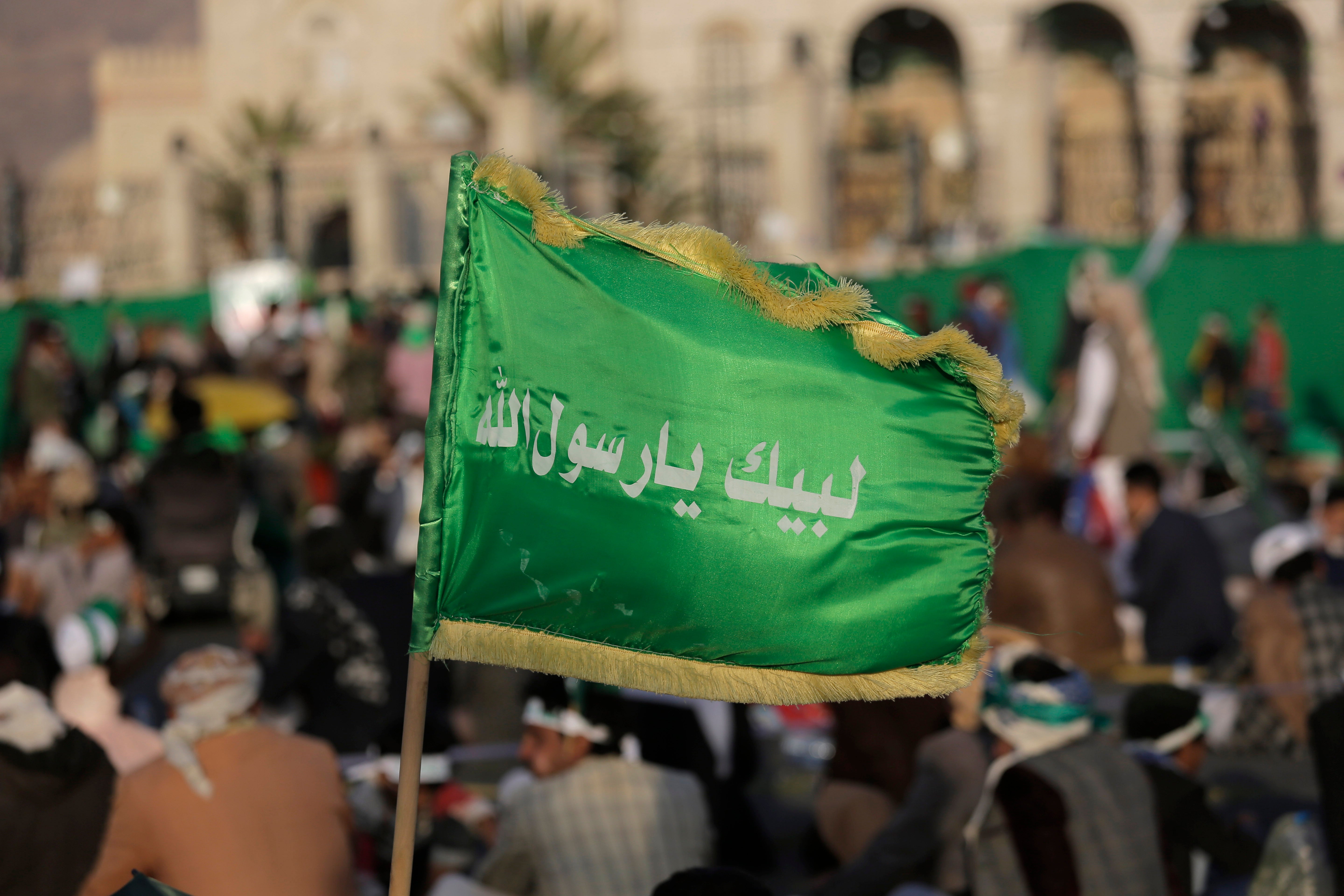After Americans freed, Yemen sides swap prisoners
A Yemeni rebel-run satellite TV channel is broadcasting the start of a long-awaited prisoner exchange between the country’s warring sides

Yemen's warring sides on Thursday kicked off a long-awaited prisoner exchange, a day after the country s Iran-backed rebels freed two Americans and released the remains of a third who had died in captivity.
The exchange is part is part of a U.N.-brokered deal between the rebel Houthis and a Saudi-backed coalition backing Yemen’s internationally recognized government in the yearslong civil war. It wasn't immediately clear if the swap was related to the freeing of the Americans the previous day but the timing of the events appeared significant.
The conflict in the Arab world’s poorest country erupted in 2014, when the Houthis seized the capital, Sanaa, and much of the country’s north. The Saudi-led coalition, backed by the U.S., launched a military intervention months later to restore Yemeni President Abed Rabu Mansour Hadi’s government to power.
A rebel-run satellite TV channel broadcast the start of the swap as three planes carrying freed Houthi prisoners touched down in Sanaa.
Another two planes took off from Sanaa, one carrying freed Yemeni government prisoners and another carrying 15 Saudis and four Sudanese who had fought alongside government forces, the Houthis' Al-Masirah TV said. The planes headed to Seyun airport in southern Yemen and Abha airport in Saudi Arabia.
Last month, the U.N. announced that the Houthis and the government side had agreed to exchange more than 1,000 prisoners, marking the first phase of a prisoner-release plan reached earlier this year. The swap was being coordinated by the International Committee of the Red Cross in Yemen.
Hundreds of Houthi politicians and military commanders lined up on the tarmac in Sanaa, where a red carpet was rolled out and a military band played. As they disembarked, the released rebels, all dressed in white robes, raised their clenched fists chanting “God is Great,” and “Death to America and Israel.”
Later Thursday, the Saudi-owned Al-Arabiya TV aired live footage of freed Yemeni government prisoners disembarking from their plane in Seyun airport in the eastern province of Hadramawt, which is controlled by forces loyal to Yemen’s Saudi-backed government.
So far, a total of 360 Houthi rebels arrived in Sanaa, and another 110 are still expected to arrive later today, Abdel Qader Mortada, the head of the Houthi Committee for Prisoners Affairs told reporters.
The exchange is expected to last through Friday with the release of another 200 Houthi rebels and 150 government prisoners, Mortada added at a news conference.
The prisoner-swap deal was seen as a breakthrough during 2018 U.N.-brokered peace talks in Sweden. Both parties agreed then to several confidence-building measures, including a cease-fire in the strategic port city of Hodeida. Implementation of the tentative peace plan, however, stumbled amid ongoing military offensives and distrust between the two sides.
The Houthis’ Information Minister Daif Allah al-Shamy hailed the swap as “a huge step.”
“Today, it is not only the prisoners’ families that feel happy, but all Yemenis,” he said. “As for those who were not included in this swap, remain assured that we have plenty of tools for further exchanges.”
Occasional releases of dozens of prisoners over the past two years have served as gestures of good faith, stoking hopes the factions would implement what the U.N. has described as the war’s “first official large-scale” exchange. The two sides committed earlier this year to swap over 1,400 detainees.
On Wednesday, the Houthis freed U.S. citizens Sandra Loli and Mikael Gidada and released the remains of Bilal Fateen, the White House and officials in the region said. That development was apparently the result of mediation by Oman, which has acted as a mediator in the Mideast.
Kieran Ramsey, director of the administration’s hostage recovery cell, said Loli and Gidada would soon be on their way back to the United States. Kash Patel, a deputy assistant to President Donald Trump who worked on the deal, told The Wall Street Journal that Loli had been held by the Houthis for about three years and Gidada was held captive for about a year.
The Houthis, who did not comment on the release of the Americans, said about 240 rebels returned to Sanaa on two Omani flights. Among the returnees were wounded rebels who traveled to Muscat during peace talks in Sweden two years ago.
___
ElHennawy reported from Cairo.
Subscribe to Independent Premium to bookmark this article
Want to bookmark your favourite articles and stories to read or reference later? Start your Independent Premium subscription today.
